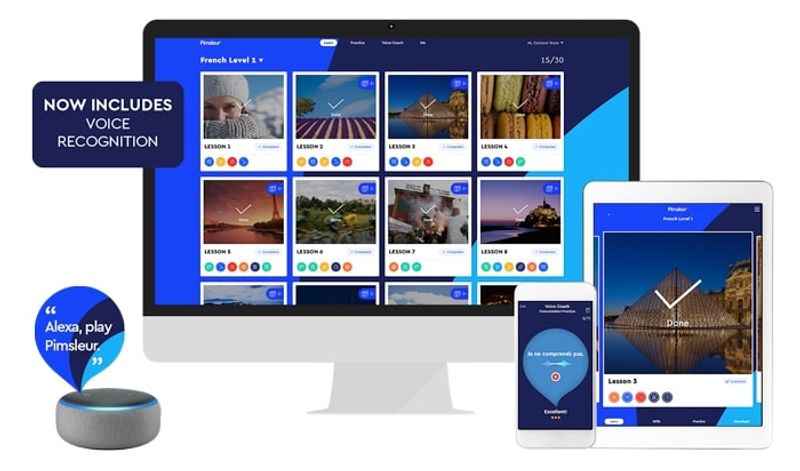How To Choose The Best Language Learning App In 5 Steps
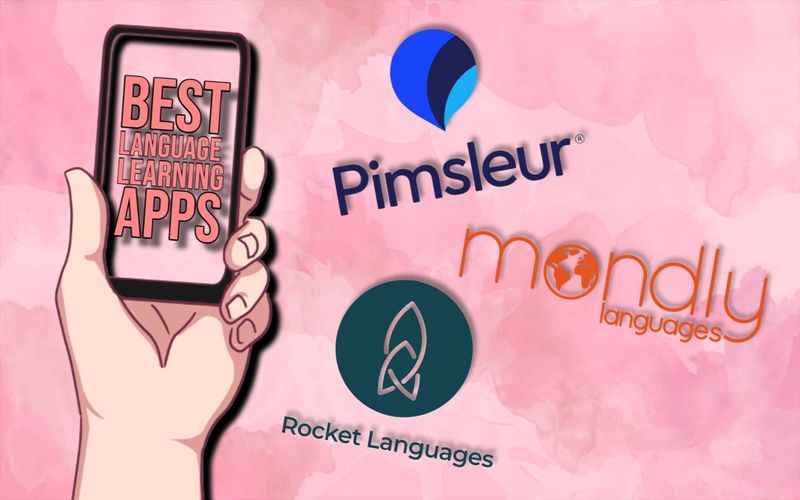
While education is becoming more expensive all the time, this doesn't mean that you have to sacrifice quality when choosing the best language-learning app.
Nowadays, with technology reaching leaps and bounds, we find that we can learn what used to be taught only in the classroom from the comfort of our own homes.
While there is no real end to the number of new resources popping up here and there, not all are actually worth your time, effort, and money.
To help you find the best one out there, this post will walk you through the 5-step, bulletproof process on how to find the best language learning application today.
We will cover the following:
- The most effective ways to choose the best language learning app for your study efforts
- What the different types of language learning apps are and how they differ from one another
- How to choose the best language learning app based on your personal needs
- Why learning languages is so beneficial for travel
How to Choose the Best Language Learning Apps for Your Study Efforts
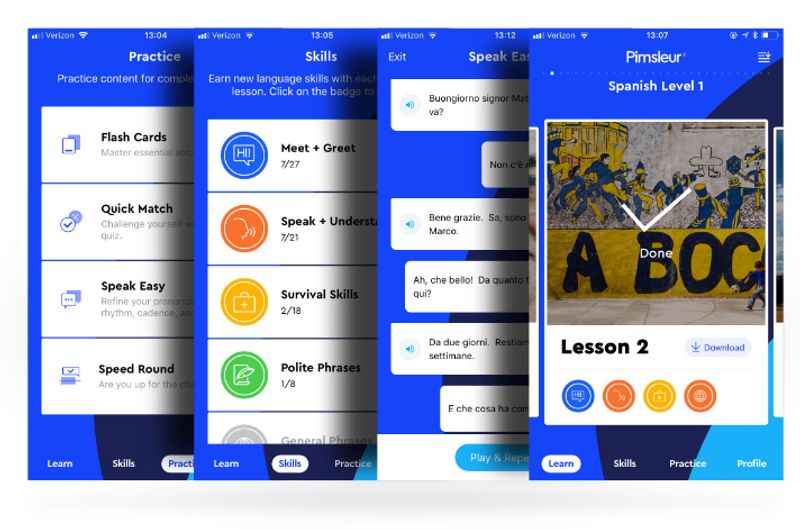
When choosing the best language learning app, it's important to navigate through the hype and consider several factors.
Ensure that the app offers your target language and has a wide range of available resources, features, and perks.
Then, look for features that align with your learning style, such as visual content, interactive exercises, or social components. Select an app that caters to your language level.
Furthermore, find an app that aligns with your interests, whether it's business language, cultural topics, or exam preparation.
By carefully considering these aspects, you can find an app that suits your needs and maximizes your language learning journey. Read on to explore these factors in more detail.
Step 1: Sort Through the Hype

Have you ever heard of "app overload"? Yep, that's a real thing!
If you are looking for resources to study and learn a foreign language online, there are literally thousands of resources from which you can choose.
One of the best ways in which you can find the best platform for your needs is to create a personal list.
Crafting a list will help you limit the language learning applications to give yourself a high-quality type of research and expose yourself more thoroughly to the unique features of the apps.
After all, different apps will have different strengths, and some of these applications may or may not be a good companion, especially for total beginners.
As a rule of thumb, no one app will instantly turn you into a native speaker. Some people believe that using multiple apps will allow you to hear various accents and encounter different word choices to attain a more rounded experience.
So, whether you're studying in a formal structure, such as a school, or you are trying to pick up a language to travel, you can bet that learning from more than one application is going to be your best bet for a more complete language learning experience.
Step 2: Check if the Desired Apps Offer Lessons For Your Target Language

No matter how many language learning apps are out there, the most important thing you should consider is the languages offered on the app. Some apps offer dozens of languages, while others, like Lingopie, offer eight languages.
Before you get attached to a certain app's learning techniques, make sure you've explored its language options.
While it is true that you may want to focus on only one language today, there might come a time when you might like to learn some of the basics in another language. You could start with apps that can provide 60+ languages all at once.
That being said, if your favorite language app offers your preferred language, it does not matter if it doesn't offer 60 others. Provided you are watching movies, completing online courses, and enjoying educational video clips in your target language, you're on the road to fluency.
The best language learning app is not defined by the number of languages it offers. However, by selecting your app this way, you'll get more value for your money and you can seamlessly transition if you want to learn two to three languages simultaneously.
Step 3: Review the Features of the Apps On Your List

One tip regarding using language-focused applications is that they often have various quizzes that will help you become totally engaged with the content.
If you are looking to work in a particular field or live abroad in a specific country, you're probably going to want to focus on the vocabulary that will most benefit you.
Therefore, finding applications with quizzes audible pronunciation, motivating yet challenging games, and other valuable tools such as flashcards or built-in chatbots is necessary.
Some of these apps are also flexible in the sense that they offer different games and quizzes, which you can purchase from the app, so be sure to add up the total cost of all these resources before you make a purchase.
The best language learning app will also have some level of interactivity as you need to interact with real-life speakers.
Some applications will use the language that you are trying to learn and match you up with another language learner on the platform who would make an excellent counterpart.
So, you get the possibility of learning from an actual native language speaker who is also most likely trying to learn your own native language.
This connection will allow several avenues of language learning to develop outside the application; if you don't feel comfortable chatting with someone, there are a variety of other programs designed to explore how you can practice through interactive games and exercises.
Step 4: Filter Your List Based On Your Learning Style, Need, and Level

As you continue to add details to your list, it would be wise to filter them now based on your specific learning style so that you can ensure that you'll get to maximize your investment in the app.
According to educational theories, every person has unique learning styles, which means that what works for others may not work for you. For this reason, you should only focus on applications that offer adaptive customization or have the flexibility to accommodate your level.
Some learners are visual learners, while others are auditory language learners, kinesthetic, or social learners. Sometimes, people benefit from a range of language learning styles and techniques.
In addition, you can sort your list based on your need. For instance, if you are a professional looking to learn about business-related expressions or formal words to use at work, you no longer need to use the apps that will teach you the basics.
Instead, consider phrasebook language learning applications.
Step 5: Let Your Interest Guide You to the Best Language Learning App

No matter how well-suited a language learning app is based on your list and research, there are instances when we might end up not liking what we have chosen.
For this reason, it would be wise to get some of the most highly-recommended applications for your target language so that you can try them out simultaneously and get a "feel" of what floats your boat.
But, at the end of the day, you are the one who is going to use the app, so you might as well sign up with something that can make you excited and motivated to learn every single day!
Our Top 3 Recommend Language Learning Apps
Now, let's take a look at three highly-recommended language learning apps. These apps all focus on a range of language skills and offer courses in various languages. They have thousands of devoted users and great online reviews.
Pimsleur
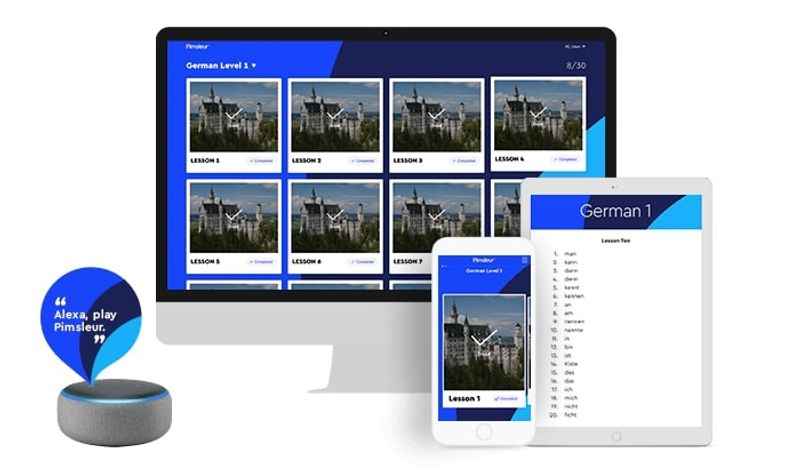
Pimsleur is a great option for anybody looking to improve their understanding of a foreign language.
Each Premium Plan includes more than 75 hours of audio content, taking you from beginner through to advanced level. Native speakers feature throughout the course to get you used to hearing the language.
Pimsleur's method is effective but repetitive. We'd like to see Pimsleur incorporate better grammar explanations into their lessons.
Mondly
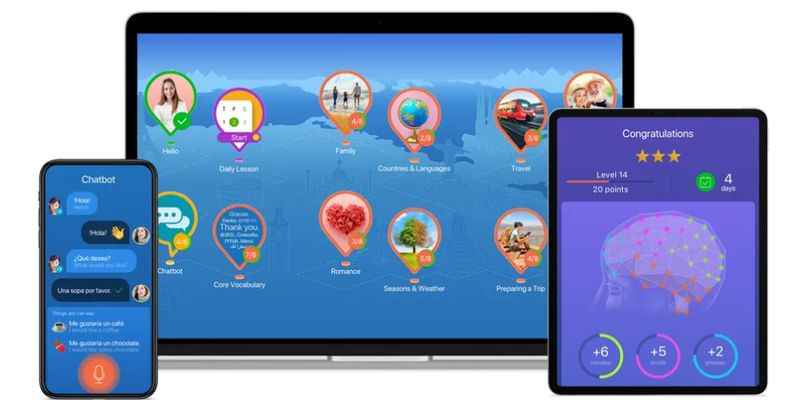
Mondly is a fun app that ticks the boxes so many language apps fail to tick. The variation of games, quizzes, and activities keeps users engaged on the platform and takes any boredom out of learning.
It is one of the few language learning options that covers listening, reading, writing, and speaking in one solution, without focusing heavily on grammar.
Mondly is suitable for beginner and intermediate learners. Advanced learners will likely prefer interaction with real people, although the app does cater to them too.
Rocket Languages
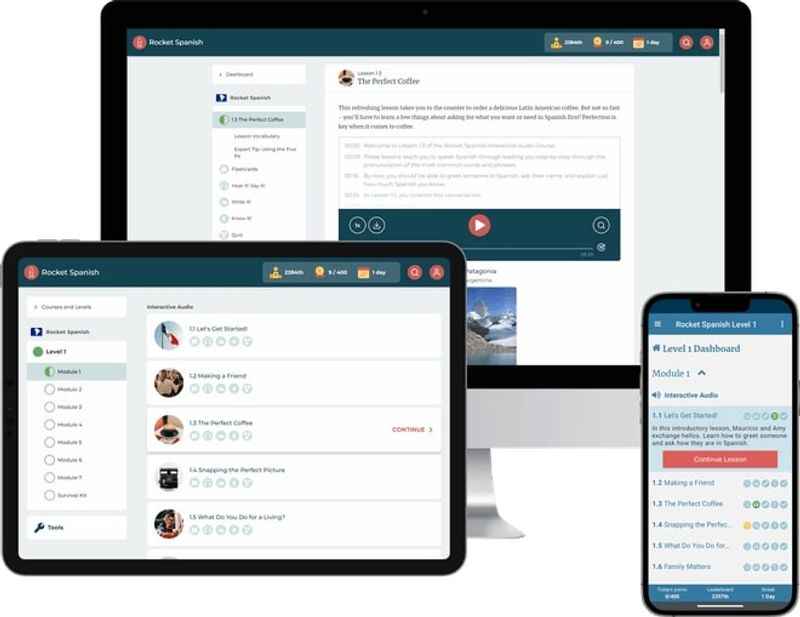
Rocket Languages is one of the more advanced language learning resources we have come across.
Its lesson features, comprehensive courses, and travelogues make it better than the majority of its competitors for beginners, intermediate and advanced learners.
It is more expensive than many other language apps because it requires a one-time payment, not a subscription. There is a free trial available for all learners.
Choosing Language Apps Based on Your Needs
In order to choose a language learning app that aligns with your needs, it's important to take into account several factors. These include your current language level, specific skills you wish to develop, preferred learning style, available features, and the overall effectiveness of the app.
Here are some considerations for selecting a language learning app based on different language levels and skills.
Beginner-Level Learners

For beginners, look for apps that provide interactive lessons focusing on foundational vocabulary, grammar, and pronunciation.
Seek out apps with beginner-friendly explanations, exercises, and audiovisual materials to enhance listening and speaking skills and retention of new words.
Intermediate-Level Learners
For intermediate learners, consider apps offering more advanced lessons to expand vocabulary, refine grammar, and improve correct pronunciation.
Look for features that provide speaking practice, like voice recognition or conversation practice with native speakers. Reading and writing exercises should also be available to enhance overall language proficiency.
Advanced-Level Learners

Advanced learners should consider apps that offer challenging content, such as authentic materials, news articles, or podcasts, to further develop language skills.
Look for specialized courses tailored to specific areas of interest, like business language or cultural topics. Seek out the few apps with advanced grammar explanations and practice exercises.
Listening and Speaking Skills
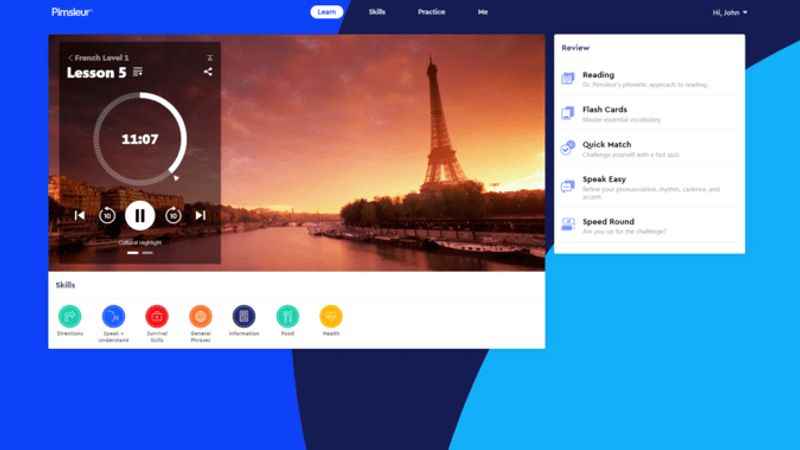
If focusing on listening and speaking skills in a new language, prioritize apps with features like speech recognition, conversation practice, and audio exercises.
Extensive audio content, such as dialogues or podcasts, can aid in improving listening comprehension. Real-time conversation opportunities with native speakers or language exchange partners are valuable as well.
Speaking with language apps can be a valuable tool for language learners. Many language apps offer comprehensive language courses that cater to different proficiency levels.
Some apps incorporate speech recognition technology, allowing users to practice their pronunciation and receive feedback.
Speech recognition exercises help learners refine their speaking skills. While most language apps provide these features, the best language app is subjective and depends on individual preferences and learning goals.
It's important to explore different apps and consider their features and user reviews to find the one that suits your needs and learning style the most.
Reading and Writing Skills
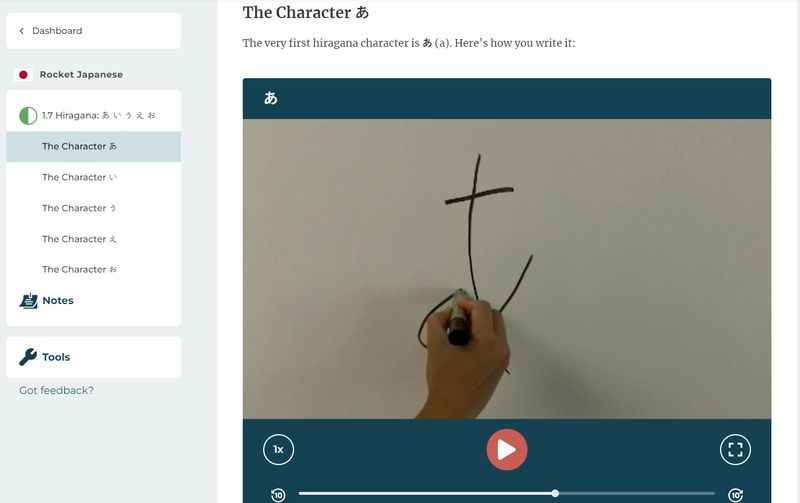
To enhance reading and writing skills in a new language, choose apps with reading comprehension exercises, vocabulary expansion, and writing practice.
Access to diverse reading materials like articles, short stories, or books is beneficial. Seek apps that provide writing prompts, grammar correction, and feedback on written work.
Many learning apps offer reading and writing practice to enhance language skills. These features are especially beneficial for offline learning, allowing users to practice anytime, anywhere.
Learning apps typically provide reading and writing exercises that cover various topics and cater to a wide range of foreign languages. This enables learners to improve their reading comprehension, expand their vocabulary, and refine their writing skills in as many languages as they like.
Whether you're practicing grammar, exploring literature, or honing your written expression, language learning apps provide valuable opportunities for reading and writing practice in multiple languages.
Exam Preparation
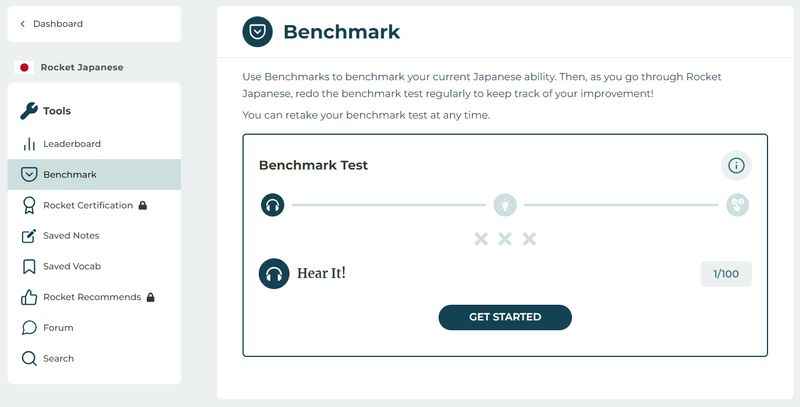
Language apps can be instrumental in exam preparation. They often offer specific courses tailored to proficiency tests, guiding learners to develop the necessary skills for success.
For specific exam preparation, consider apps offering dedicated courses or modules tailored to the test. Look for practice tests, sample questions, and detailed explanations of the exam format.
Comprehensive coverage of all language components relevant to the exam, such as listening, reading, writing, speaking, and grammar, is important.
Some apps facilitate finding a language partner for conversation practice, improving speaking abilities. Vocabulary-focused lessons cover basic words commonly tested in exams.
Audio-based learning enhances listening skills, while immersive learning approaches replicate real-life language use. By completing lessons, learners can reinforce their knowledge and prepare effectively.
Language apps typically offer exam prep for various languages, expanding options for test takers seeking comprehensive and convenient study resources.
Grammar Lessons
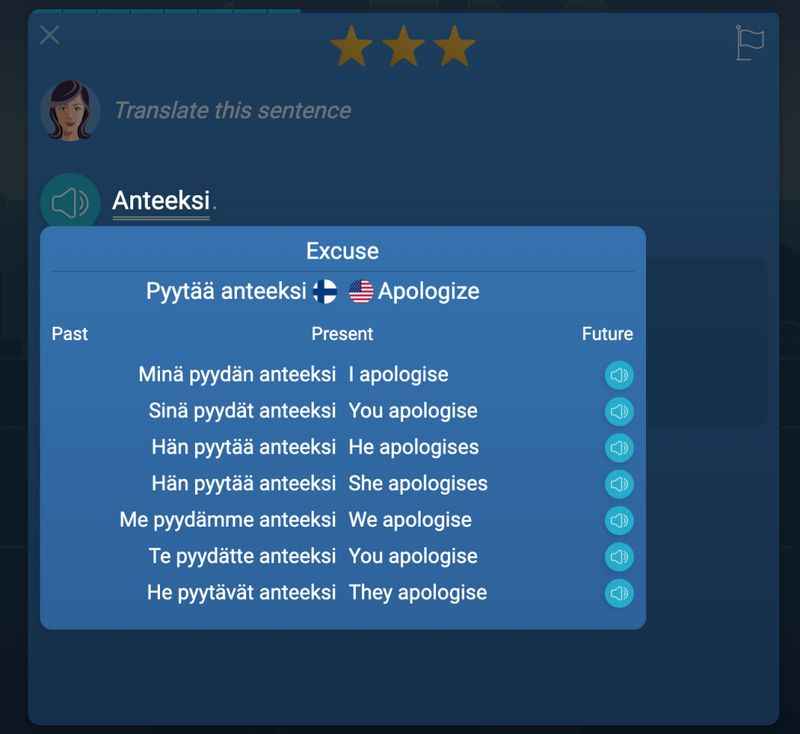
When choosing the best language-learning apps for grammar practice, look for apps that offer comprehensive grammar explanations, clear examples, and practice exercises targeting specific grammar rules.
Seek a language app that provides immediate feedback on your answers, helping you identify and correct errors. Consider any language app that offers a progressive curriculum, guiding you through grammar concepts from beginner to advanced levels.
Additionally, the best language-learning apps cater offer interactive features such as sentence building or contextual exercises to make grammar practice engaging and effective.
The best language-learning apps will provide a holistic approach to your new language that incorporates grammar, vocabulary, and language skills.
App Design, Price, and Availability
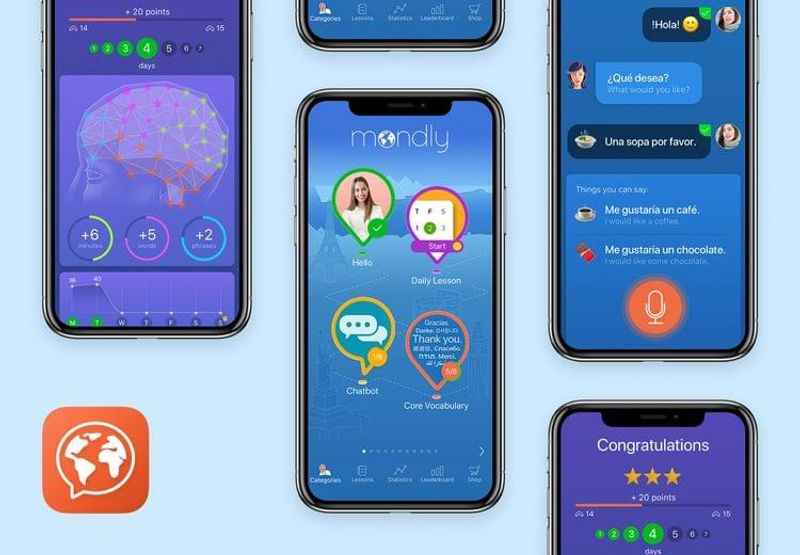
Moreover, remember to consider personal preferences, such as app design, user interface, cost, and availability on your preferred devices.
Reading reviews and trying out free trials or sample lessons can help in making an informed decision before committing to a specific language learning app.
Your preferred language learning app depends on how accessible it is to you considering your budget, location, and familiarity with the interface.
There are many cool language-learning apps with attractive displays. Find a language-learning software that makes you feel comfortable.
Learning Style
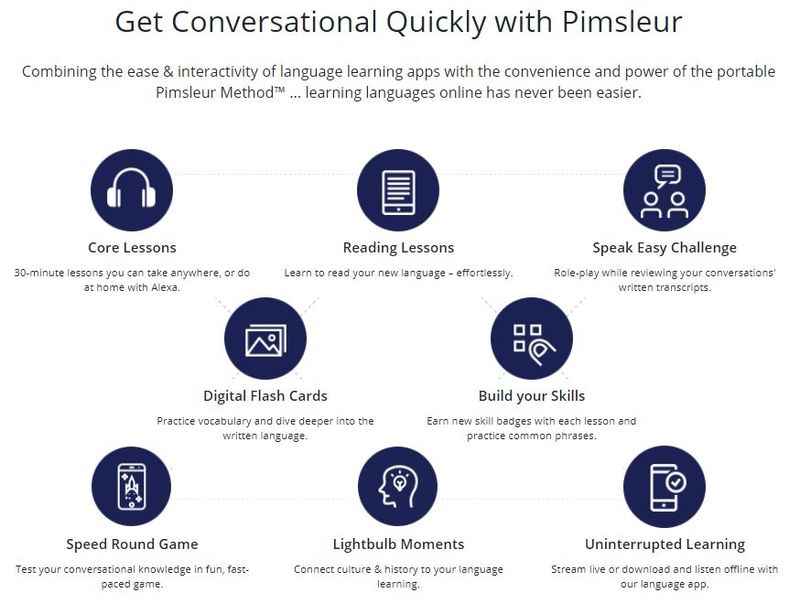
Finally, choosing a language-learning app that matches your learning style is crucial for an effective language-learning experience.
Whatever your learning style, remember with a web app, you can learn at your own pace.
1. Visual learners
Visual learners should look for visually appealing language-learning apps with images, videos, and interactive graphics. Seek visual cues, illustrations, flashcards, and organizers for better understanding and memorization.
2. Auditory learners
Auditory learners should look for language-learning apps that emphasize audio content with dialogues, recordings, and pronunciation exercises. Clear audio recordings, voice recognition, and speech feedback enhance listening and speaking skills.
3. Kinesthetic learners
Kinesthetic learners will benefit from interactive exercises, hands-on activities, gestures, quizzes, games, and role-playing scenarios. These features engage kinesthetic learners best. Writing, typing, and speech recognition software will also aid practice and reinforcement.
4. Social learners
Social learners will thrive using language-learning apps with community features, language forums, chat groups, and language exchange opportunities, as they facilitate interaction.
Collaborative learning options like group projects and shared spaces will further enhance the social learning experience.
Learning Languages for Travel
Learning a language for travel offers a multitude of benefits that can enhance your overall travel experience.
There are several key reasons why it is beneficial to learn a language before embarking on your journey, and we will explore each in detail.
Effective Communication Overseas

Learning the local language facilitates effective communication with natives, enabling deeper cultural interactions and meaningful connections. It empowers you to ask for directions, order food confidently, negotiate prices, and seek assistance, greatly enhancing your travel experience.
With the ability to engage in conversations, you can connect with the locals on a personal level, gain insider recommendations, and uncover hidden gems.
Improved communication also fosters mutual understanding and respect, breaking down barriers and creating memorable encounters. By speaking the local language, you open doors to immersive experiences, local insights, and a greater sense of belonging wherever your travels take you.
Deeper Immersion in Society

Learning a language for travel enables deeper immersion in the local society, offering valuable insights into customs, traditions, and values. By speaking the local language, you can engage in conversations, understand subtle nuances, and participate in cultural activities.
This deepens your connection with the local community, allowing you to experience the destination beyond surface-level tourist attractions.
Through language, you gain a greater appreciation for country-specific nuances, traditions, and local perspectives. It enriches your travel experience by providing opportunities to forge genuine connections, embrace local customs, and create lasting memories rooted in cultural understanding.
Fostering a Genuine Connection

When you make an effort to speak the local language while traveling, it conveys respect for the local culture and fosters a genuine connection with the people you encounter.
This gesture bridges cultural gaps, breaks down barriers, and allows for a deeper understanding and appreciation of the destination.
By speaking the local language, you demonstrate your sincere interest in connecting with the locals, leading to more authentic and meaningful interactions.
This can result in memorable encounters, cultural exchange, and the possibility of forming lasting friendships that transcend borders and enrich your travel experience.
Cultural Appreciation

Learning a language opens the door to a deeper understanding of the destination's history, literature, music, and art. It offers a unique perspective, allowing you to delve into the rich cultural heritage of the place you're visiting.
By understanding the language, you can engage with locals, access authentic sources, and gain insights that transcend translations. This deeper understanding enables you to appreciate the nuances of local cultures and artistic expressions.
It enriches your travel experience by fostering a greater connection with the local culture, fostering a profound appreciation for the destination's heritage, and contributing to a more meaningful and immersive exploration.
Independence While Traveling

What's more, learning the local language for travel bestows a sense of independence for the traveler. It liberates you from relying solely on translation apps, guidebooks, or tour guides, enabling you to navigate unfamiliar territories confidently.
You can read signs, understand transportation systems, and venture off the beaten path to discover hidden gems.
Speaking the local language grants you the freedom to explore and interact with the destination on your terms, uncovering authentic experiences that may otherwise remain undiscovered.
This independence allows for more spontaneous and immersive travel, empowering you to create personalized itineraries and make the most of your journey.
Safety and Security Abroad
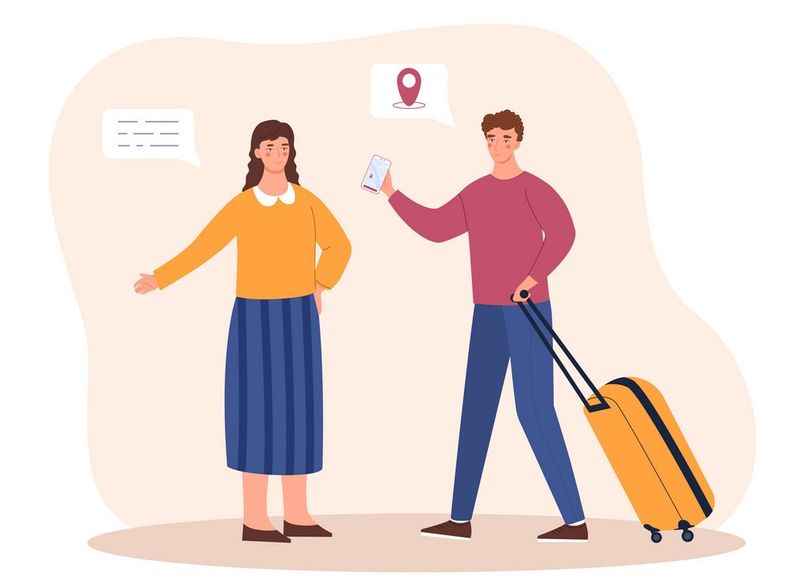
Having knowledge of the local language enhances your safety and security while traveling. It enables you to understand crucial safety instructions, ensuring that you can follow guidelines and protect yourself in unfamiliar situations.
In case of emergencies, being able to ask for help and communicate your needs in the local language can expedite the response and aid you in seeking timely assistance.
Moreover, when dealing with local authorities or medical professionals, effective communication through the local language ensures clearer explanations of your situation and more accurate guidance or treatment.
Overall, language proficiency contributes to your overall well-being and peace of mind during your travels. Learning a language for travel enhances your experiences, fosters cultural understanding, facilitates communication, and opens doors to unforgettable encounters.
It shows respect for the local culture and enhances your overall enjoyment and appreciation of the destination, making your travel adventures more rewarding and memorable.
FAQs About Language Learning Apps
Now that you've explored this guide to choosing the right language apps for your needs, let's dive into some frequently asked questions on this topic.
What language learning app can make you fluent?
Achieving fluency in a language depends on various factors beyond just using an app. It requires a lot of language immersion, time, and consistent effort. However, apps like Pimsleur, Mondly, and Rocket Languages can be helpful in developing language skills and building a strong foundation for fluency with consistent practice and dedication.
You should incorporate the best language learning apps into your language studies as well as other resources.
Is there a free language learning app?
Yes, there are free language learning apps available, while others have subscription costs or one-off payment plans but offer a free 7-day trial to test the courses put before you buy them.
While several apps offer free access to basic language learning features, additional premium features may require a subscription or purchase, and often this is worth it for the increased learning potential.
What is the best app to start learning a language?
The best app to start learning a language depends on personal preferences and learning styles. Popular choices for beginners include Pimselur, Mondly, and Rocket Languages. It also depends on how many languages you want to learn.
Experimenting with different mobile apps, considering features, user interface, and available languages can help determine the best fit. Moreover, it can help to use two or more apps in conjunction for an optimized learning experience that incorporates all four language skills (reading, writing, listening, and speaking).
Do language learning apps really work?
Language learning apps can be effective, but success depends on personal commitment and consistency. Apps offer structured lessons, and interactive exercises, and often incorporate gamification to engage learners.
Combining apps with other resources like conversation practice and immersion can maximize learning outcomes.
How do I find out what learning style I have?
Discovering your learning style involves reflecting on how you learn best. Consider whether you prefer visual aids, auditory input, hands-on activities, or social interaction.
Reflect on past successful learning experiences and try different methods to determine which ones resonate with you most.
Summing Up: How To Choose The Best Language Learning App In 5 Steps
In conclusion, choosing the right language learning app based on your needs requires thoughtful consideration. Sorting through the hype and focusing on the availability of your target language is crucial.
Assessing app features that align with your learning style, such as visual, auditory, kinesthetic, or social, enhances the effectiveness of your learning experience.
Considering your language level and selecting an app that offers appropriate content is essential. Additionally, choosing an app that caters to your interests, be it business language, cultural topics, or exam preparation, ensures a more engaging and enjoyable learning journey.
By carefully evaluating these factors, you can make an informed decision and find the language learning app that best meets your individual needs.

